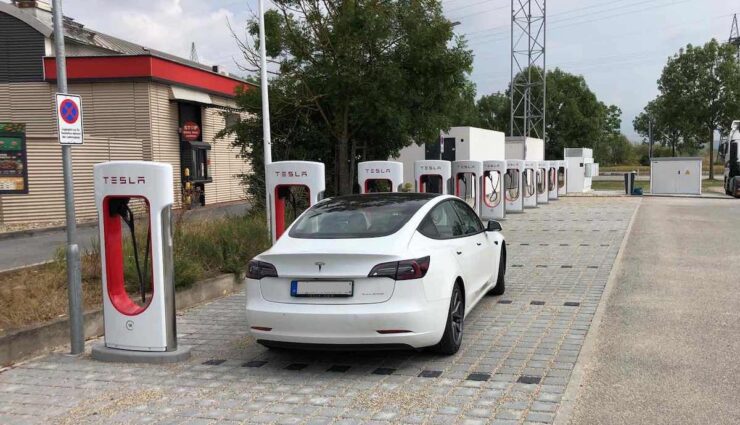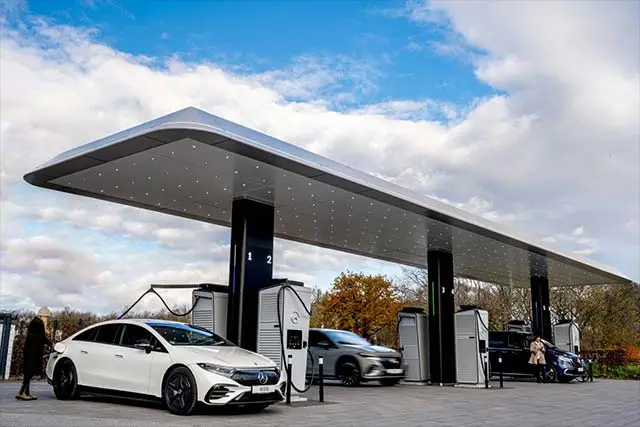The European Parliament has successfully negotiated new regulations that mandate the deployment of electric vehicle charging stations with an output power of at least 400 kW every 60 kilometers along the core Trans-European Transport Network (TEN-T) routes by 2026. By 2028, the output power on this network is set to increase to 600 kW.
Recently, the European Parliament approved new regulations aimed at providing more alternative fuel stations for cars and trucks, facilitating accessible charging, and promoting cleaner maritime fuels. These regulations are part of the “Fit for 55 in 2030” package, an EU initiative to reduce greenhouse gas emissions by at least 55% from 1990 levels by 2030, with a focus on decarbonizing the transportation sector.

As per the successful negotiations by European Parliament members, by 2026, there must be a charging station with an output power of at least 400 kW every 60 kilometers along the core TEN-T network routes. By 2028, the network’s output power is expected to increase to 600 kW. For trucks and buses, charging stations must be provided every 120 kilometers. By 2028, over half of the major roads in the EU region will have such stations, with output power ranging from 1400 kW to 2800 kW, depending on the road.
The new regulations also mandate EU countries to ensure the deployment of a hydrogen station every 200 kilometers along the core TEN-T network by 2031.
Users of alternative fuel vehicles must be able to easily pay at charging points (using payment cards or contactless devices) with fuel prices displayed per kilowatt-hour, per kilogram, or per minute/session. The European Parliament members ensure the establishment of an EU alternative fuel data “database” by 2027, providing consumers with information on the availability, waiting times, or prices at different fuel stations.

Additionally, the European Parliament approved new rules regarding clean maritime fuels. These rules aim to gradually reduce greenhouse gas emissions from ships, with a 2% reduction below 2020 levels in the greenhouse gas content of the energy they use starting from 2025, reaching an 80% reduction by 2050. This applies to ships with a total tonnage exceeding 5000 tons, covering approximately 90% of CO2 emissions.
To significantly reduce air pollution in ports, container ships and passenger ships berthed at major EU port terminals must use shore-side power to meet all their electricity needs starting from 2030. The regulations also set a target of 2% renewable fuel use by 2034, provided a committee reports that non-biological renewable fuels (RFNBO) account for less than 1% of the fuel mix by 2031.
The European Commission’s “European Green Deal,” introduced on December 11, 2019, sets the goal for Europe to become the first climate-neutral continent by 2050. The “European Climate Law,” effective from July 2021, reflects the EU’s commitment to climate neutrality by 2050 and the intermediate target of reducing net greenhouse gas emissions by at least 55% from 1990 levels by 2030. The EU communicated its commitment to achieving a net greenhouse gas emissions reduction of at least 55% “by 2030” to the United Nations Framework Convention on Climate Change in December 2020 as its contribution to the goals of the Paris Agreement.
Thanks to the existing EU climate and energy legislation, greenhouse gas emissions in the EU have already decreased by 24% compared to 1990 levels, while the economy has grown by approximately 60%, demonstrating successful decoupling of growth from emissions. This tested and validated legislative framework forms the basis for this new legislation.



